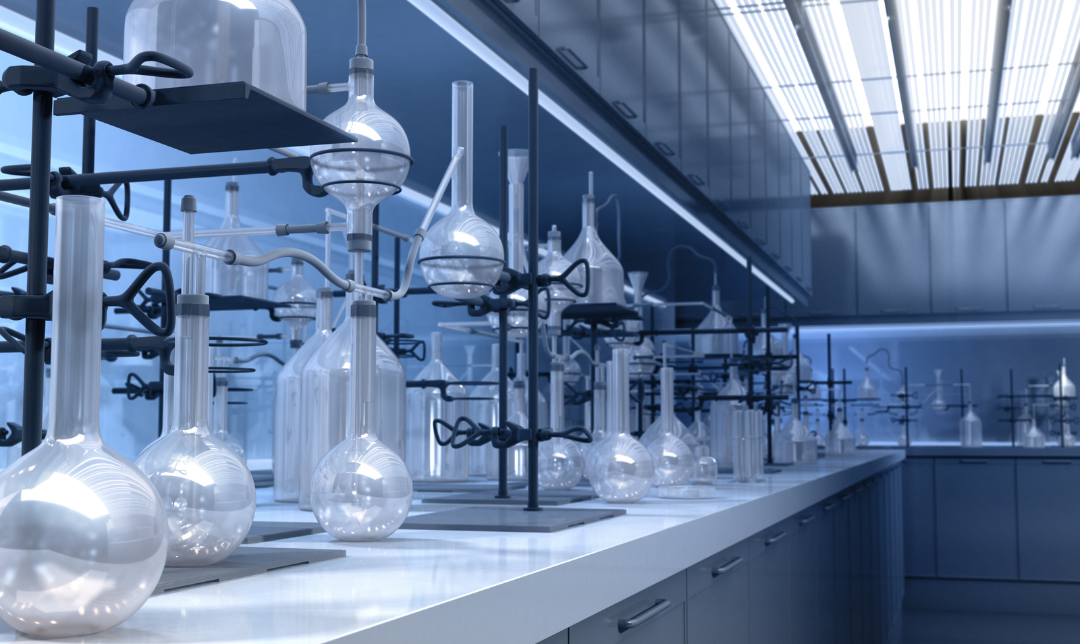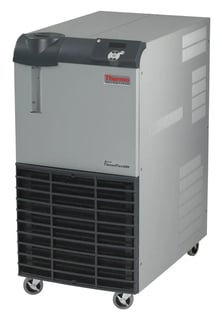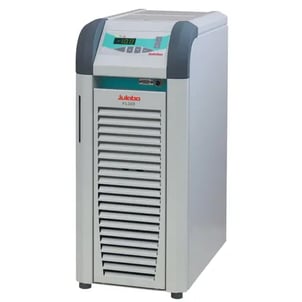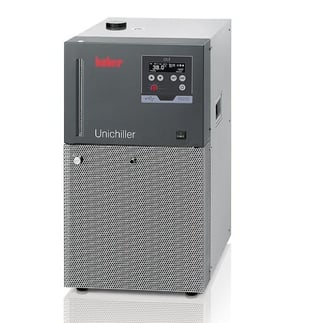
Recirculating chillers are essential pieces of equipment in many laboratories, providing precise temperature control and cooling for a wide range of applications. Whether you're cooling analytical instruments, lasers, or reactors, choosing the right recirculating chiller can significantly impact the efficiency and reliability of your experiments. This guide aims to help you navigate the various options available and select the best recirculating chiller for your laboratory's specific needs.
Table of Contents:
- Understanding Recirculating Chillers
- Factors to Consider When Choosing a Chiller
- Popular Recirculating Chiller Models
- Application-Specific Considerations
- Making the Final Decision
Understanding Recirculating Chillers
What is a Recirculating Chiller?
A recirculating chiller is a closed-loop system that circulates coolant to remove heat from a process and dissipates it through an external heat exchanger. Unlike one-time-use cooling methods, recirculating chillers reuse the coolant, making them more efficient and environmentally friendly. These chillers are used in various laboratory applications, including spectroscopy, rotary evaporation, and reaction temperature control.
Key Components of Recirculating Chillers
1. Compressor: Drives the refrigeration cycle by compressing the refrigerant.
2. Heat Exchanger: Transfers heat from the coolant to the refrigerant.
3. Pump: Circulates the coolant through the system.
4. Reservoir: Stores the coolant.
5. Control System: Manages temperature settings and system operations.
Factors to Consider When Choosing a Chiller
1. Cooling Capacity
Cooling capacity is one of the most critical factors when selecting a recirculating chiller. It is typically measured in watts or BTUs per hour and indicates how much heat the chiller can remove. Your choice should be based on the heat load of your application, ensuring the chiller can handle peak demands without overworking.
2. Temperature Range
The required temperature range will depend on your specific applications. Ensure the chiller you choose can maintain the necessary temperatures for your processes. Some chillers offer a broad range, suitable for applications requiring both high and low temperatures.
3. Flow Rate
Flow rate, measured in liters per minute (LPM) or gallons per minute (GPM), determines how quickly the coolant can circulate through your system. A higher flow rate can improve cooling efficiency but may require a more powerful pump.
4. Coolant Compatibility
Different applications may require specific coolants, such as water, glycol, or specialized refrigerants. Verify that the chiller is compatible with your chosen coolant and can handle any specific requirements, such as corrosion resistance or viscosity.
5. Energy Efficiency
Energy-efficient chillers can reduce operating costs and environmental impact. Look for models with energy-saving features like variable speed compressors, eco-friendly refrigerants, and intelligent control systems that optimize performance.
Popular Recirculating Chiller Models
1. PolyScience DuraChill Turbine Pump Chillers
PolyScience's DuraChill turbine pump chillers are celebrated for their durability, precision, and advanced technology. These chillers are designed to meet the diverse cooling needs of modern laboratories, offering models with cooling capacities ranging from 600 watts to over 10,000 watts. Key features of the DuraChill series include:
- Turbine Pump Technology: Provides high-pressure and high-flow rates, ensuring efficient heat removal & consistent temperature control.
- Advanced Control Systems: User-friendly digital interfaces with precise temperature settings, alarms, and remote monitoring capabilities.
- Robust Construction: Built with high-quality materials for long-lasting performance and minimal maintenance.
- Environmentally Friendly Refrigerants: Uses eco-friendly refrigerants to minimize environmental impact.
- Energy Efficiency: Incorporates energy-saving features such as variable speed compressors and intelligent control algorithms to optimize performance and reduce operating costs.
These features make the DuraChill series an excellent choice for applications requiring reliable and precise temperature control, such as spectroscopy, rotary evaporation, and reaction temperature management.
2. Thermo Scientific ThermoFlex Series
The ThermoFlex series by Thermo Scientific is known for its reliability and versatility. With various models offering cooling capacities from 500 watts to 24,000 watts, these chillers are suitable for a wide range of applications. Key features include:
- High and Low Temperature Stability: Ensures consistent performance across a broad temperature range.
- User-Friendly Interface: Easy-to-navigate control panels with digital displays and intuitive settings.
- Energy-Efficient Design: Incorporates energy-saving technologies to minimize power consumption.
- Customizable Options: Offers a range of configurations to meet specific laboratory requirements.
3. Julabo FL Series
Julabo's FL series offers robust and precise temperature control with capacities ranging from 250 watts to 20,000 watts. These chillers are designed for demanding laboratory environments and feature:
- Wide Temperature Range: Suitable for applications requiring both low and high temperatures.
- High Flow Rates: Ensures efficient cooling for large-scale or high-heat applications.
- Advanced Digital Control System: Provides precise temperature management and remote monitoring capabilities.
- Compact & Durable Construction: Designed to fit in limited spaces while withstanding harsh laboratory conditions.
4. Huber UniChiller Series
Huber's Unichiller series is renowned for its high-performance and eco-friendly design. These chillers provide cooling capacities from 500 watts to 100,000 watts and offer:
- Environmentally Friendly Refrigerants: Uses refrigerants with low global warming potential.
- Low Maintenance Requirements: Designed for easy maintenance and long service life.
- Precise Temperature Control: Advanced control systems for accurate and stable temperature management.
- Modular Design: Allows for easy integration and scalability in laboratory setups.
Each of these chiller models offers unique advantages tailored to specific laboratory needs, ensuring that you can find the perfect match for your cooling requirements.
Application-Specific Considerations
1. Rotary Evaporation
Rotary evaporation requires chillers with quick temperature response and high cooling capacity to efficiently condense solvents. Ensure the chiller can handle the heat load and has sufficient flow rate for your evaporator.
2. Spectroscopy
For spectroscopy applications, stable and precise temperature control is crucial. Look for chillers with high-temperature stability and low noise levels to avoid interference with sensitive instruments.
3. Reaction Temperature Control
In chemical reactions, maintaining a consistent temperature is vital for reproducibility and safety. Choose a chiller with robust control systems and the ability to operate over a wide temperature range.
Making the Final Decision
- Assessing Your Laboratory's Needs: Evaluate your laboratory's specific requirements, including the type of applications, the necessary cooling capacity, temperature range, and budget constraints.
- Comparing Models: Use comparison charts to evaluate different models based on key factors such as cooling capacity, temperature range, flow rate, energy efficiency, and additional features.
- Considering After-Sales Support: Reliable after-sales support can be crucial for the long-term operation of your chiller. Consider the manufacturer's warranty, availability of spare parts, and customer service reputation.
Selecting the right recirculating chiller for your laboratory involves careful consideration of various factors to ensure optimal performance and reliability. By understanding your specific needs and comparing popular models, you can make an informed decision that will enhance your laboratory's efficiency and productivity.
